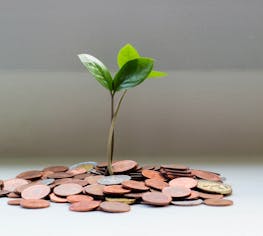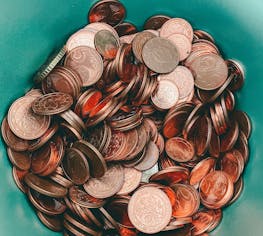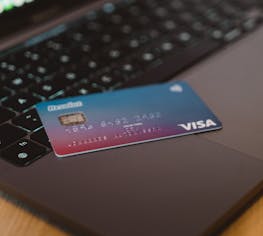Why is it that there are so many highly educated, hardworking people who struggle financially?
Rich Dad Poor Dad, addresses wealth, and the importance of practical financial education and money management. The lessons center around common beliefs about legacy wealth, growing capital, assets, liabilities, and cash flow. In essence, it's about rethinking money and how we make it work for us.
Most of us study, get a job, and then spend the rest of our lives working for money. No one teaches us how to make money work for us instead. Rich Dad Poor Dad shows us the significant knowledge gap in learning about financial security and wealth. The wealthy tend to teach their children about wealth management. However, the poor and middle-class generally don't have these conversations with their children.
Robert Kiyosaki's aim with Rich Dad Poor Dad, is to make the playing field more equitable by providing financial advice to everyone. Kiyosaki's financial lessons began when he was just nine years old. He grew up in Hawaii and came from a middle-class background. He felt left out at school because his more affluent friends could afford things that he and his friend Mike couldn't. So he and Mike teamed up to learn how they could make money. They called upon both of their dads for advice.
Both dads were very different. Whereas Robert Kiyosaki's dad was highly educated, holding multiple degrees and a Ph.D., Mike's dad hadn't completed the eighth grade. Both men were hardworking, intelligent, and believed in education. They only disagreed on what to learn. For example, Robert's dad's advice was to study hard, and then find employment at a steady company. Mike's dad's approach was to study hard to find an excellent company to buy.
The two men also had differing beliefs about money. Robert's dad's ethos was that being beholden to money makes people unhappy. In contrast, Mike's dad believed that having money is a critical factor in happiness. Robert Kiyosaki's dad, known as Poor Dad in the book, is always struggling financially. On the other hand, Mike's dad became one of the richest men in Hawaii. As you guessed, Mike's dad is the rich dad from the book.
This summary will briefly look at these two influential figures who helped Kiyosaki determine what to do, and what not to do when building wealth and achieving financial freedom. Using these two figures as case studies, he takes us through five core insights. These include a look at money and emotions, why financial intelligence matters, and three ways to boost your financial IQ. He also teaches us what assets and liabilities are, and why you should invest in assets and reduce your liabilities. Finally, he looks at tax, the power of corporations, and why it's best to keep investing in financial education.
Let's Take a Look at Money and Your Emotions
There are few things more emotive than money. Kiyosaki argues that fear and greed are the two primary emotions when it comes to money, and both of these lead to bad financial decisions.
Fear motivates us to work hard, but it also causes us to become risk-averse. Once the money starts coming in, greed tends to take over and can cause us to overspend, carelessly. Kiyosaki warns us that it's not how much money we make, but how much money we finally keep. If we're ignorant or oblivious about managing our finances, then these emotions can cause havoc- resulting in poor financial decisions.
How do you feel about financial risk? We're often so afraid of losing money, that we don't invest in stocks or other assets. Merely because of the risks that we perceive. These risks, however, often have beneficial long-term payoffs. On the other hand, greed motivates us to spend our excess money on a better lifestyle, a new house, or a new car. This spending results in larger loan repayments, and higher bills.
Kiyosaki advises that we learn to "use our emotions to think, not think with our emotions." So the idea is that improving financial intelligence can help us be more rational, and less wavered and distracted by emotion when handling our money.
Financial literacy is essential, but formal education seldom teaches what is necessary for building wealth. Kiyosaki's solution is that if you want to learn, you need to educate yourself.
Learning About Financial Literacy
Even today, schools don't formally teach us the subject of money. This means that most of us learn about money, from our parents. We may not want to admit it, but parents don't always have the best financial track-records, so they can't always give the best financial advice. Like Poor Dad from the book, many parents encourage their children to stay school and work as hard as possible. Eventually getting a job, and working for a paycheck. Kiyosaki says that while this philosophy may help us earn a nice income, it's not the secret to building wealth.
Many graduates leave school without financial skills. Millions of educated people may have successful professions, but they often struggle financially in later life. Not being financially savvy and planning for the future, could cause us financial stress as we get older.
In the United States, 50% of the workforce is without pensions. Of the remainder, nearly 75-80% have insufficient retirement money.
It seems unfair that so many of us work hard, but still can't seem to get ahead financially. Kiyosaki says that what's missing from our education isn't how to earn a stable income, but what to do once we start earning.
He suggests three key concepts to boost your financial IQ.
First, Get Strategic: Invest in Assets and Reduce Liabilities
To become financially literate, you first need to learn to distinguish between assets and liabilities. Kiyosaki says that the key to making money work for us is to buy assets, which generate income. We don't want to purchase liabilities. These are possessions that lose money over time, or may incur large expenses. It may seem obvious, but it's easy to misunderstand the difference between assets and liabilities, resulting in a financial struggle.
One of the most common financial struggles is cash flow. Many of us earn income from our jobs, and pay off expenses such as food, clothing, entertainment, and transport. Instead of obtaining assets, we tend towards taking on liabilities, such as mortgages, credit cards, and loans. All these things take money out of our pocket and drastically influence cash flow.
Did you know that a new car depreciates by 25% when we drive it out of the dealership? Rich people tend to have different cash flow patterns to minimize their liabilities. Instead of a job as their only income source, they acquire assets. These assets either grow, or put money directly into their bank accounts. Over time, they start to earn what's known as passive income. Assets make money for you, even while you're sleeping. Examples of assets are businesses that don't require your presence, stocks, bonds, mutual funds, income-generating real estate, and royalties.
Kiyosaki's Poor Dad earned a lot of money from his job. The problem is, his expenses always seemed to match his income. Furthermore, his liabilities increased over time. This continual increase is dangerous, because when income equals expenses, and assets are less than liabilities, we fall into debt. In the case of Rich Dad, the majority of his wealth came from investing in assets and minimizing his liabilities.
Kiyosaki identifies four ways to earn an income. You can work for others, be self-employed, own your own business, or invest. The first two, both working for others or being self-employed, require a continuous time exchange for money. These two options are also subject to heavy taxation. The other two ways, of owning a business and investing are how rich people build wealth. The less wealthy focus on earned income, whereas rich people focus on creating passive income from assets and investments.
It's important to remember that wealth isn't our net-worth. It's not our house, car, or professional income. According to Kiyosaki, wealth comes down to financial freedom. It's how long you could live off the money you've accumulated if you were to stop working today. Financial freedom is when our passive income exceeds our expenses. Time and autonomy are ours to keep.
So the advice here is to keep your daytime job, while you start accumulating assets. Avoid liabilities and luxuries that bring no real value to your life. If you do this for long enough, you'll eventually build up a decent passive income.
Secondly, Get Tactical: Understand Tax and the Power of Corporations
As the adage goes; the only certainties in life are death and taxes. We all know that tax is compulsory, and that it frustratingly reduces our wealth. However, very few people put in the effort to mitigate unnecessary taxation.
The rich tend to find ways to minimize their tax burden. One way they do this is through the coverage of a corporation. Kiyosaki highlights a simple fact that could change how you view your finances. Individuals are taxed before expenses, but corporations are taxed after expenses. So, by starting a corporation, if done correctly, it's possible to legally write off vacations, car expenses, health club memberships, restaurant meals, and so on. In addition to this, the income-tax rate of the corporation is less than individual income-tax rates.
So, in short, the poor earn, pay taxes, then spend. Through the power of corporations, the rich earn, spend, and only then pay taxes. It may sound unfair, but you can use this to your advantage.
One of the important messages in this book is that we need to understand how the tax system in our particular country works. Using this knowledge, we need to find ways to reduce how much the government can legally tax us.
And yes, this requires mental effort, but the choice is yours to make. If you want to stay motivated and invest in your financial education, it'll benefit you in the long run. Learning is a critical factor in wealth creation. Kiyosaki lists fear, cynicism, laziness, and arrogance as obstacles to learning and growth. Don't let those be the things that stand in your way.
Sometimes, just staying busy is a form of laziness. If we're not busy at work, we may be watching TV, fishing, playing golf, or shopping. Yet, deep down, we know we're avoiding something important. That's our financial situation.
Similarly, arrogance can also be a huge obstacle to learning. According to Kiyosaki, arrogance is a combination of ignorance and ego. If you combine this with poor financial knowledge, this will impede growth and learning opportunities.
Finally, Cynicism Can Blind Us to Financial Opportunities
What if you changed how you frame the statements around your finances? For example, Poor Dad might say, "I can't afford that," whereas Rich Dad might reframe it into thinking, "how can I afford that?"
This shift in perspective can make a massive change in our attitudes and behaviors towards wealth and opportunities. So often, our mental obstacles prevent us from taking risks or embracing opportunities. Rich Dad Poor Dad teaches us that we all need to be a lot more aware of our mental obstacles, and emphasizes investing in your financial education.
You can develop financial intelligence, and Kiyosaki suggests a few broad aspects that we can all work on. Firstly, establish your financial and accounting literacy. Learn how to understand financial statements. Then, think about growing your investment knowledge by learning about various investment options and understanding the risk levels involved in each of them. Thirdly learn to track and investigate markets by understanding supply and demand. Understanding markets is a significant factor in financial success, so study what the market requires, and align your product or service accordingly.
Market tracking also enables people to assess the likelihood of various investments succeeding under different market conditions. The next step is to understand the law, such as tax allowances, and any legal and insurance protection. And again, never stop learning and pursuing knowledge about wealth and finances.
Find books, courses, and mentors.
In Conclusion
There's no such thing as easy money, and Rich Dad Poor Dad is by no means a quick fix, or an easy alternative to working hard.
On the contrary, this book's message is that you need to work hard to make money. Maybe not in the conventional ways your parents or grandparents may have taught you, though. The idea is that the actual hard work is learning how to make your money work for you, rather than spending your life working for money. This shift in thinking isn't easy.
The key message in Rich Dad Poor Dad, is that financial fredom requires a lot of learning, adapting to different mindsets, managing emotions about money, and educating ourselves about tricky concepts such as tax and corporations.
Maybe what's most difficult is letting go of all of the mental obstacles that get in the way of financial opportunities. So, let go of traditional thinking, and readjust how you perceive wealth and your financial future. Achieving financial freedom, could be worth it.




